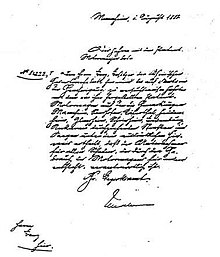Avoiding accidents can save you a lot of time and money
1. Slow down. Obey the speed limit even if every other car is surpassing it. Remember that police officers often stay hidden from view while looking for speeders. If you're caught driving too fast, they won't hesitate to give you a ticket.
2. Let others pass you. Defensive driving means letting others go ahead-not defending your position in traffic. Avoid the urge to be a vigilante ("Oh yeah? Let me show you what it's like to be cut off like that!") Accept the fact that someone is always going to think they're in more of a hurry than you. These are the drivers you want to move far away from, not to 'teach them a lesson.'
3. Try to avoid driving in bad weather. Always keep your windshield wipers going in the rain or snow. Defrost your windshield to keep it from fogging up. Turn on your headlights to help others to see you--this is also the law in some states. If possible, try to avoid driving in the snow at all, especially if your car is rear wheel drive. If you must go out in the snow, drive extra slow, use the brakes and gas pedal gently, and maintain an increased stopping distance.
4. Never get into a car with a drunk driver. It is always best to have a "designated driver". Never drive after you have had alcoholic beverages. Even one beer can alter your ability to drive safely.
5. Wear a seatbelt. This is a must. By law in many countries, all cars must have a safety restraint. Buckling up only takes a second and can save your life in an accident. Children should always be in a booster seat or car seat until they are tall enough and heavy enough to sit by themselves. This generally includes children age eight and under. Never put a child in a car or booster seat in the front passenger seat or other seat with airbags. Children should generally be 12 and older when sitting in the front passenger seat.
6. Keep your car and its accessories in good condition. Keep the tires properly inflated, the brakes adjusted, and the windshields and windows clean. Replace windshield wiper blades when they begin to streak, and all make sure all the lights are working properly.
7. Use your signals properly. Always use your signal, even if you think no one is there. When changing lanes on the freeway, don't signal as an afterthought or during the lane change. Signal at least a couple of seconds in advance so others know what you're going to do before you do it. (Ever notice how most of the skid marks along the highway are just before an exit ramp? - this is where you have to be the most careful.)
8. Don't tailgate. No matter how slowly traffic is moving, keep at least two seconds of following distance between you and the car ahead. Any less and you won't be able to stop in time if the driver ahead slams on the brakes.
9. Keep your eyes moving. Don't get in the habit of staring at the back of the car ahead of you. Periodically shift your eyes to the side-view mirrors, the rear-view mirror, and ahead to where you'll be in 10-15 seconds. Doing this, you can spot a potentially dangerous situation before it happens.
10. Dim your lights when driving at night, when another car is approaching, or when you are following behind a vehicle. Your lights can temporarily blind another driver.
11. Avoid distractions when you are driving. Pull over if you need to talk on the phone, read directions, or eat a snack. It only takes a second or two of distraction to get into trouble.



